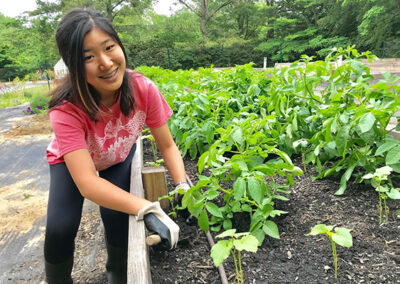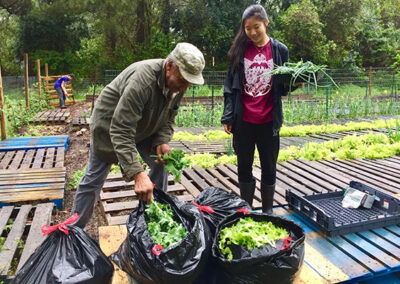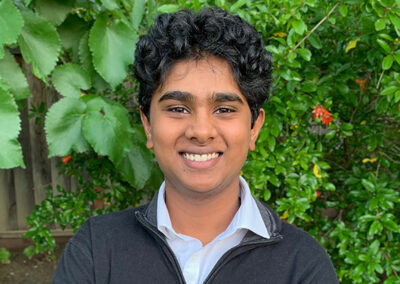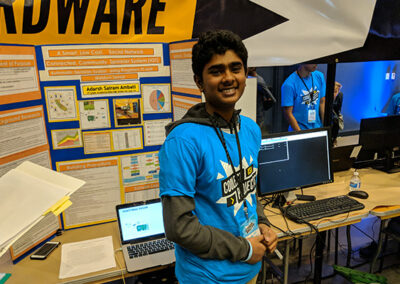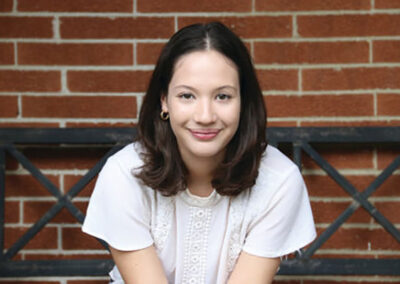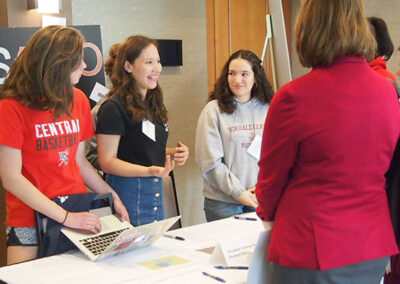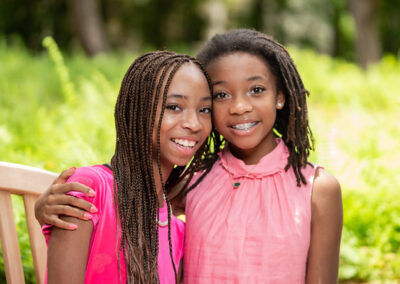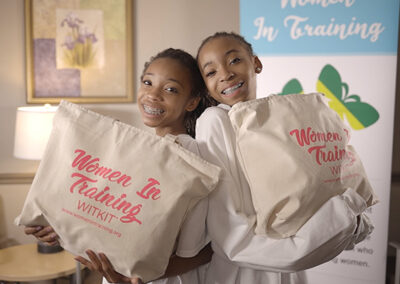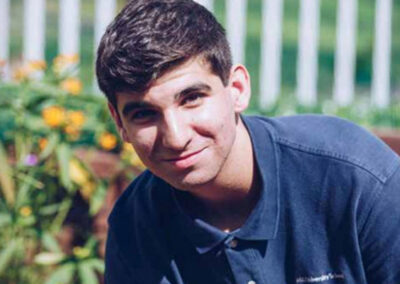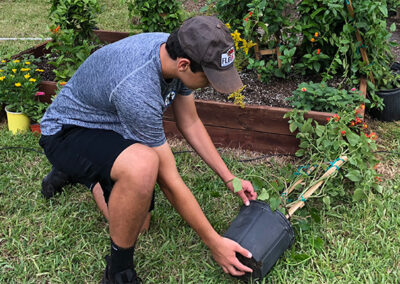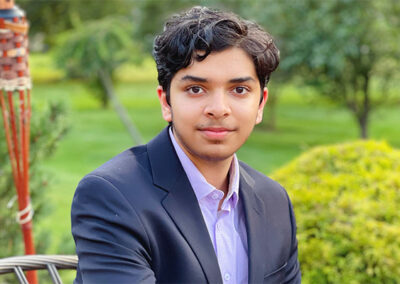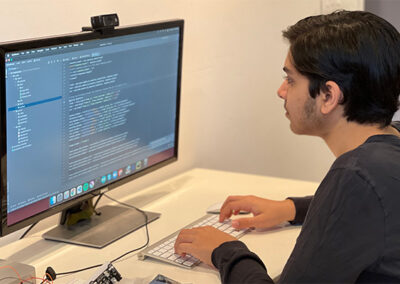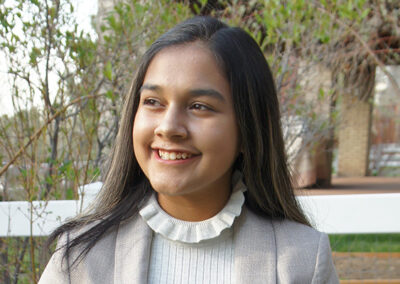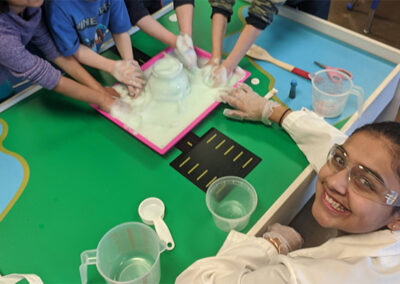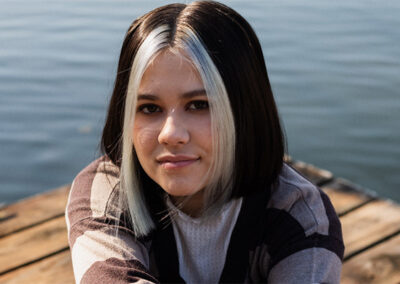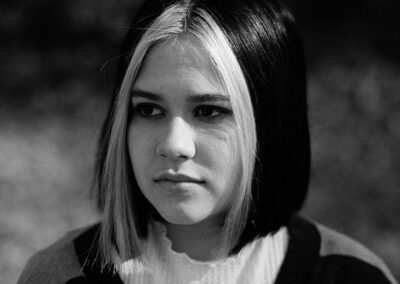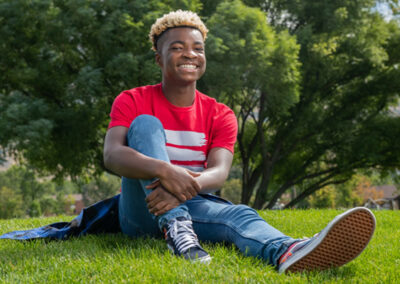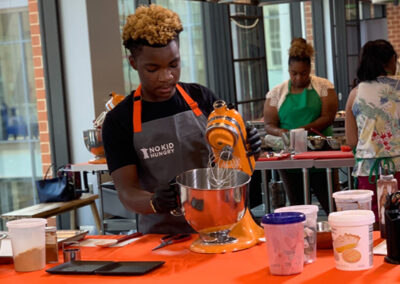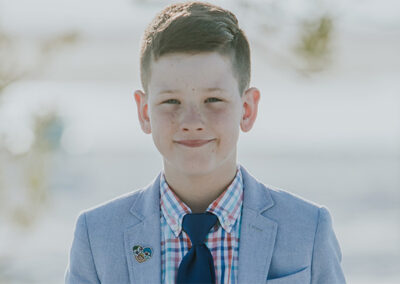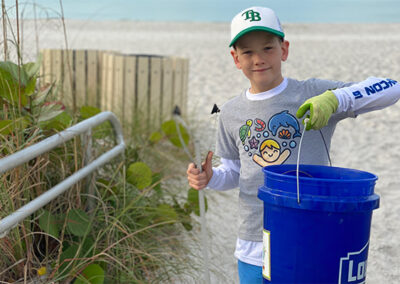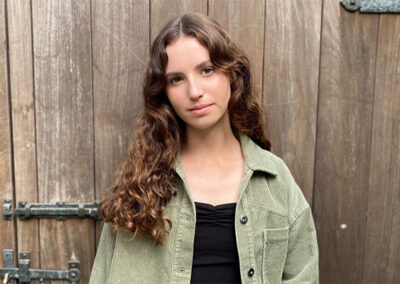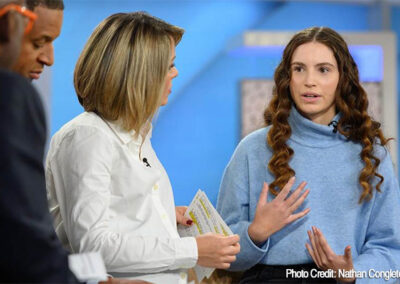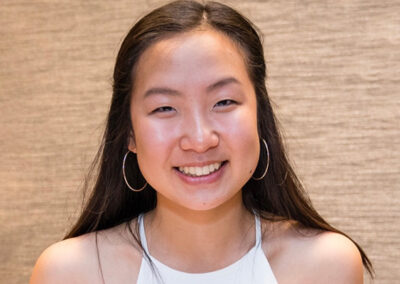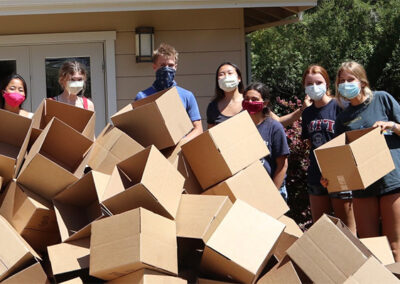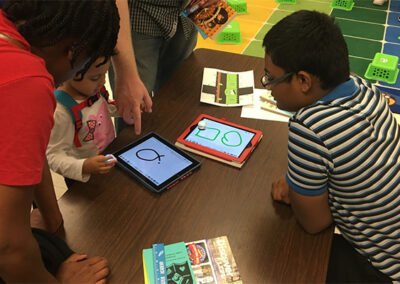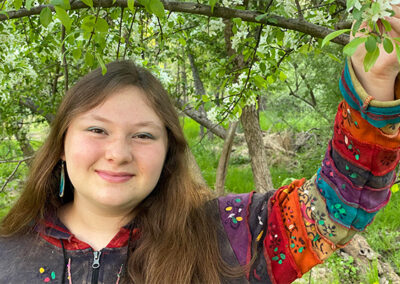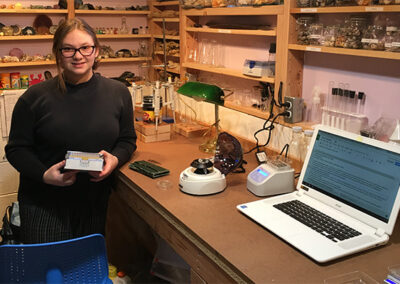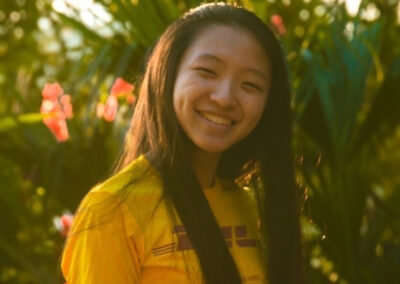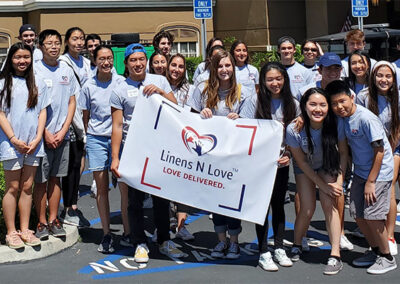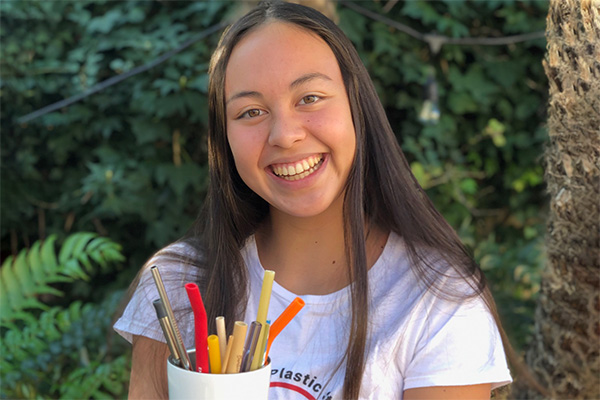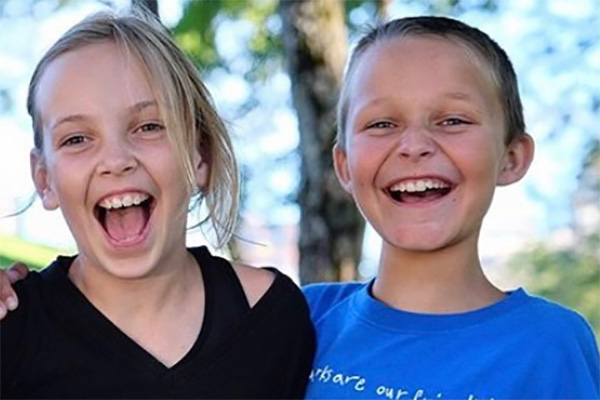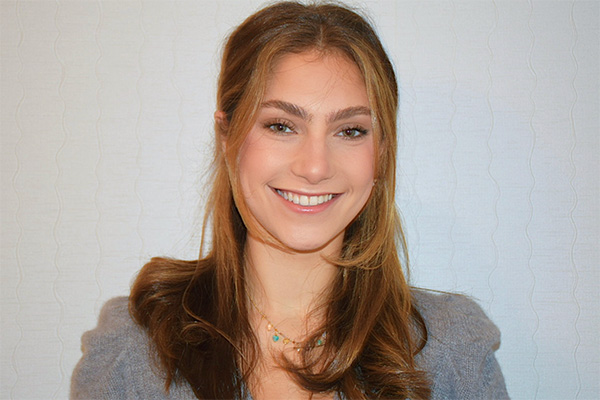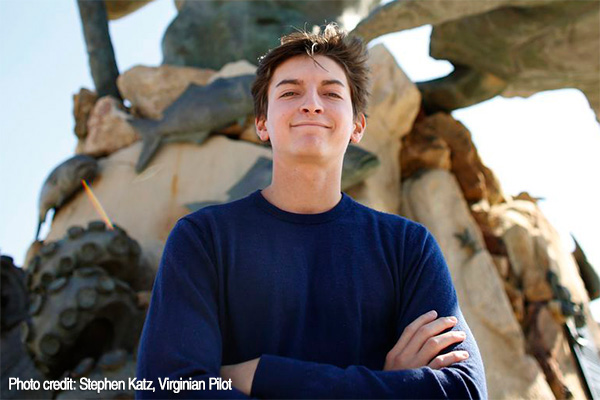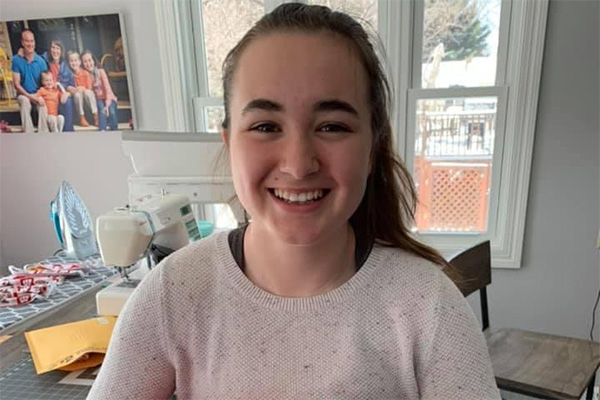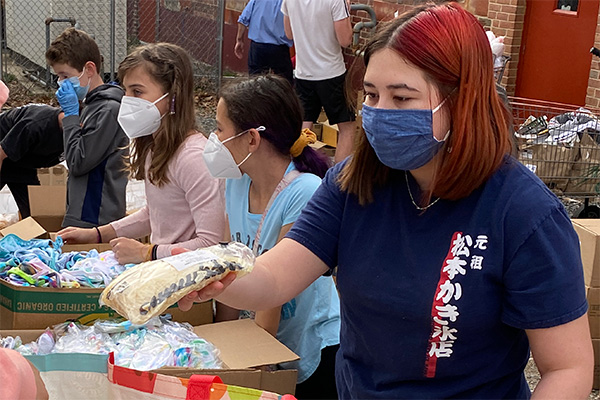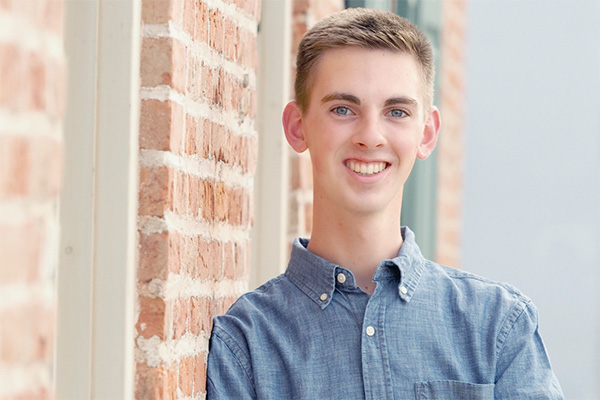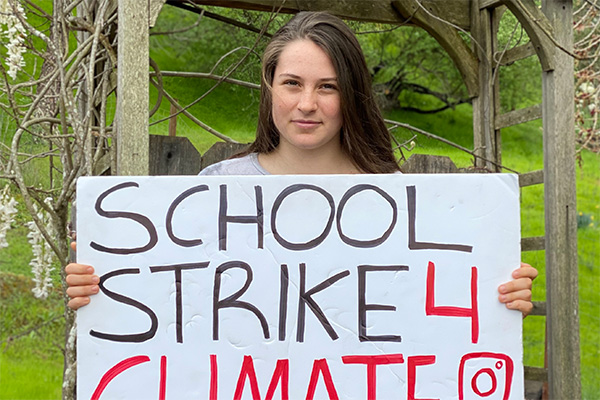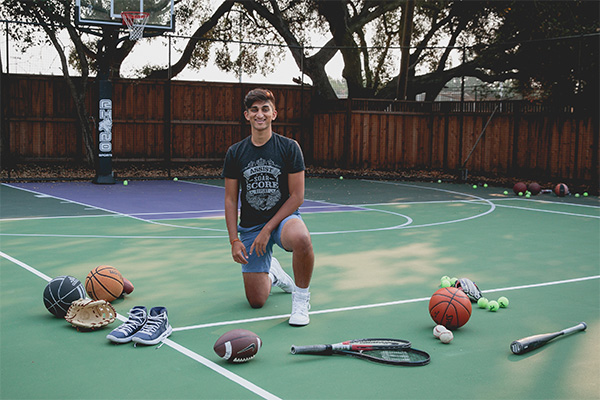Barron Prize Winners
2021 WINNERS
2021 Winners Announcement
Forbes.com
Abby Yoon
Sustainable Hunger Initiative
Age at Winning Prize
17
Home State
North Carolina
Abby began SHI as a ninth grader following her move to a different school district, where she was struck by the larger homes, better school conditions, and lack of diversity. She realized for the first time the injustices of residential segregation and resolved to do what she could to address the related environmental and health disparities. She joined a local nonprofit called LAST (Love a Sea Turtle), an environmental stewardship and youth leadership program, and began expanding their food insecurity initiatives. That work grew into SHI. Abby has recently extended her mentorship to include a “We Stand” Black History Awareness project in partnership with local government, as well as a Community Dialogue Series facilitating conversations around racism and diversity. “The past four years have provided me with the most rewarding and educational experiences,” says Abby. “They’ve also altered my perception of what a dedicated team of youth, community members, and I can achieve.”
Adarsh Ambati
The Green Environment Initiatives ![]()
Age at Winning Prize
16
Home State
California
Additional Media Coverage
He began his efforts in middle school in the midst of the California drought. Frustrated to see the water wasted by his neighborhood’s automatic sprinklers, Adarsh began designing a better watering system. It integrates real-time weather forecast data and city water regulations to determine when and how long to run sprinklers – and then shares the guidelines via Twitter. He has piloted his system to demonstrate a monthly water savings of 2,500 gallons per household and is working with a local water company interested in using it. Another drought-related experience – the disappearance of frogs from the creek in front of his home – prompted Adarsh to develop a new way to test frogs and other amphibians for a fungal pathogen that is threatening species worldwide. His non-invasive method uses simple, inexpensive test strips to swab amphibians’ skin. It produces results more quickly (within minutes versus days) and more economically ($0.25 versus $200) than current methods. Leading scientists have validated his technique, which Adarsh hopes will allow citizen scientists to help protect frogs. “I’ve come to value the importance of perseverance in the face of adversity,” says Adarsh. “More importantly, I’ve discovered that through innovation, education, and advocacy, even teenagers like me can make a resounding impact on the world.”
Alexandra Collins
Students Against Ethylene Oxide ![]()
Age at Winning Prize
17
Home State
Illinois
Additional Media Coverage
WTTW Chicago – Latino Voices – 11/13/21
WBBM Newsradio – 10/18/21
Daily Herald – 10/16/21
Chicago Tribune – 10/07/21
WGN TV Chicago – 09/27/21
As a first step, she attended a government-led panel on EtO, the only teenager in the room, and was disheartened to receive flippant responses to her honest questions. Around the same time, she learned that her state’s former governor had partnered financially with EtO-emitting companies while in office. Her trust in government rattled, she and her sister launched SAEtO to organize their peers in researching EtO’s effects on the body. Equipped with data linking EtO to cancer, the group began making presentations, speaking with health officials, attending legislative hearings, and organizing mass mailings. Despite continual pushback from those in power, SAEtO stood steadfastly by the mountain of evidence they’d compiled, earning the respect of educators, politicians, and community members. In just over a year, Alexandra’s group was instrumental in pressuring the local polluter to shut down. SAEtO continues to write politicians and stage protests in an effort to enact nationwide legislation banning EtO emissions near schools. The group also recently launched EtO-Free, which posts online reviews of EtO-free beauty products. “I’ve learned that youth shouldn’t be embarrassed or silenced by their lack of experience or expertise when combatting issues in their community,” says Alexandra. “Our voices should carry no shame, no quietness.”
Brooke and Breanna Bennett
Women In Training, Inc.
Age at Winning Prize
14
Home State
Alabama
Additional Media Coverage
Authority Magazine – 03/03/22
People Magazine – 10/06/21
US News & World Report – 10/03/21
Montgomery Advertiser – 09/24/21
Brooke and Breanna launched WIT in 2019 after learning that 20% of American youth skip school or work because they can’t afford menstrual products. They asked for money in lieu of gifts for their twelfth birthday, hoping for $200 to buy menstrual products for at-risk girls. Instead, they received $2,000 and began distributing their monthly WITKITS. When the pandemic hit, requests for help poured in from shelters, women’s centers, and children’s care homes. The girls fundraised to meet the increased need by organizing the Virtual WIT 5K Race to End Period Poverty and a virtual Women’s Film Festival, showcasing films produced by women and girls. The sisters are currently working with State Representative Rolanda Harris on a bill that would require Alabama public schools to provide free menstrual products. “I’ve learned to trust my instincts and now I feel confident that I can accomplish my goal of making the world a better place,” says Brooke. “I’ve learned to challenge people to use their privilege to help others,” adds Breanna.
Brooke and Breanna are featured on our sister site, Inspiring Young Heroes.
Duncan Jurman
Bring Butterflies Back ![]()
Age at Winning Prize
18
Home State
Florida
Passionate about butterflies since preschool, Duncan began teaching elementary students about the insects in fourth grade. By age 16, he had partnered with the Broward County School District to teach more students about butterflies and conservation, and to establish campus gardens. Around the same time, he learned that Florida’s butterfly counts and diversity were dwindling. Determined to help bolster their numbers, he created Bring Butterflies Back. He built his website as a source of information and inspiration and developed educational materials. Working with the Broward County Butterfly Chapter, he has tagged butterflies, protected threatened species, collected and distributed native seeds, and promoted home gardening. He has also joined scientists for three weeks of field study in Cuba and recently co-led a yearlong butterfly research project with a local university professor. “Leading this initiative gave me a voice to comfortably share my butterfly passion,” says Duncan. “It also awakened the activist in me and taught me the power of a common goal in uniting different entities to effect environmental change.”
Faraz Tamboli
TalkMotion
Age at Winning Prize
14
Home State
New Jersey
Additional Media Coverage
His inspiration stems from his dad’s childhood stories of an aphonic boy who couldn’t communicate verbally, which left the boy isolated and the neighborhood kids frustrated. Familiar with Google’s voice recognition capacity, Faraz began building a prototype to convert sign language gestures into voice. When he realized there was no readily available data for gesture-to-voice mapping, he collected his own – the 1,000 samples of gestures needed to teach his algorithm a 12-word vocabulary. He has tested his prototype to rave reviews at the New Jersey School for the Deaf and is now tackling the next step – collecting enough data so that his device can learn at least 1,000 words, enabling basic conversations. The gargantuan task would involve collaborating with sign language translators to collect 200,000 samples of gestures. He is talking with investors to sponsor this initiative. “I’ve learned that persistence is the only way to face challenges,” says Faraz. “And I’ve learned that so many people in the world struggle with problems. Sometimes we can’t completely solve the problems, but we can try our best to make their lives easier.”
Faraz participated in an IYH Big Ideas series on Inclusion on our sister site, Inspiring Young Heroes.
Gitanjali Rao
Inventor, Young Scientist, STEM Advocate
Age at Winning Prize
15
Home State
Colorado
Additional Media Coverage
VoiceAmerica – 12/02/21
India West – 10/21/21
Westword – 10/18/21
MSN – 10/14/20
Colorado Parent – 02/12/2025
Gitanjali leads workshops nearly every weekday by partnering with STEM organizations, museums, schools, refugee camps, and Girl Scouts, among other groups. She supports more than 200 K-12 students each week and is working with global organizations like UNICEF to extend her reach. Questions and feedback from her workshops prompted her to write her recently released book, A Young Innovator’s Guide to STEM. Corporate and individual sponsorships allow her to provide the book free of charge to many students. Sponsors also fund local science fairs to encourage innovation from rural schools. “My work has shown me the inequality in students’ opportunities worldwide and that things I take for granted like clean water and qualified teachers aren’t available everywhere,” says Gitanjali. “I feel a moral responsibility to share the mentorship I received at an early age and I want to inspire students with a can-do attitude. I also hope my workshops highlight the need for innovation earlier in our educational curriculum worldwide.”
Jordan Reeves
Born Just Right
Age at Winning Prize
15
Home State
Missouri
Jordan made waves at age 11 when she invented a prosthetic arm that shoots biodegradable glitter. She named it Project Unicorn and decided to use the excitement and attention it generated to help change the conversation around disability. Born Just Right provides a platform for her efforts. She has spoken at TEDx events and conferences and has worked with Mattel designers to develop a Barbie doll that uses a prosthetic leg. She has also launched Make Just Right to help create brand new design skills and job paths for kids and adults with disabilities. Jordan hopes Make Just Right will help change the statistics that indicate people with disabilities are less likely to land full-time jobs. “I spoke up, and new opportunities helped me change how the world talks about and views disabilities,” says Jordan. “I want to grow my nonprofit into something bigger – to reach more people and inspire more creativity.”
Michael Platt
Michael’s Desserts
Age at Winning Prize
16
Home State
Maryland
Additional Media Coverage
Beyondish – Mar 2022
Good Morning Washington – 12/08/21
The Baltimore Times – 11/11/21
Chesapeake Family Life – 10/05/21
Bay Weekly – 10/2021
Diagnosed with epilepsy at age 9 and advised to cut back his involvement in sports, Michael decided to pursue his passion for cooking and baking. He began his business as an 11-year-old and resolved to use it as a way to help others. He started small, baking cupcakes and delivering them to kids at domestic violence shelters. He has grown his offerings to include Freedom Fighter Cupcakes, original creations designed each month to honor “the people who inspire us to be better, solve big problems, and change the world.” His cupcakes have honored freedom fighters Dr. Martin Luther King, Maya Angelou, and Malala Yousafzai, among others. Michael introduces his monthly cupcakes via video to his 12,000 Instagram followers, explaining each freedom fighter’s contribution and how they’ve inspired him. “My dad tells me to do what I love in service to others,” says Michael. “That’s why I chose to use Michael’s Desserts to help people – to support them with their basic needs so they can pursue what they love to do and make a difference with it.”
Michael’s story is featured on our sister site, Inspiring Young Heroes.
Miles Fetherston-Resch
Kids Saving Oceans ![]()
Age at Winning Prize
9
Home State
Florida
Additional Media Coverage
Time for Kids – 04/05/23
The Tampa Bay 100 – 12/01/22
Ranger Rick – Oct 2022
WFLA – 09/30/21
Miles began his work at age 6 as a concerned shark lover, worried about the way we treat sharks as well as our oceans and beaches. He offered to donate his piggy bank’s $13 to conservation efforts but his mom challenged him to think bigger. He believes passionately that our actions matter and hopes to “inspire regular people to do more for the ocean.” He wrote his recently published picture book, Kids Saving Oceans: Olivia Makes a Difference, to inspire future environmentalists. “I’ve learned how important it is to find my voice and speak up for our oceans, even if it scares me,” says Miles. “I want people to know that every choice to do better matters, and all our individual choices multiplied by a lot of people will add up to a big difference.”
Olivia Seltzer
The Cramm
Olivia’s inspiration began soon after the 2016 election, when fears of the President-elect’s stance on immigration swept through her group of middle school friends – most of them Latinx and many with undocumented parents. For the first time, she felt a personal connection to current events. She also realized that though she and her peers talked about the news nonstop, none of them were actually following it daily — and that without it, they couldn’t work to address problems. She immediately tried researching the news and rewriting it for her generation. Within a few weeks, she’d bought the domain name thecramm.com with money from her thirteenth birthday, had taught herself coding to build a website, and had sent out the first edition of The Cramm. Since then, she has overcome extreme shyness to speak about her work around the world. She has also built a team of 500 global ambassadors who help translate The Cramm into numerous languages and grow its reach. “In creating The Cramm, I’ve stepped far outside my comfort zone,” says Olivia. “While working to help others, I’ve ended up helping myself more than I ever could have imagined.”
Olivia’s story is featured on our sister site, Inspiring Young Heroes.
Rachel Park
Curieus
Rachel launched her program as a high school freshman after noticing the huge disparity in her biology classmates’ science preparedness. She did some research and learned that 89% of students in one of her school’s two feeder districts came from low-income families and from schools that lacked STEM classes. She realized the irony that in Silicon Valley, too many students were being left behind in science and technology. Determined to address the inequity, she spent months contacting schools, developing curriculum, building a website, and creating a 20-page manual. Accidentally misspelling “curious” one day, she named her program Curieus after pioneering scientist Marie Curie. When the pandemic hit, her team developed Curieus in Quarantine, a hands-on science video curriculum with viewers worldwide that has been adopted by five U.S. school districts. For families with limited access to technology, Rachel launched Curieus Cares — boxes of free science materials and experiment booklets that her team has hand-delivered to more than 800 families. “In starting Curieus, I’ve gained confidence in my ability to act boldly and engage my peers,” says Rachel. “The experience has sparked my life’s mission to address inequities through the power of social entrepreneurship and innovation.”
Shreyas Kar
Community AI
Age at Winning Prize
16
Home State
Kentucky
Additional Media Coverage
Community AI provides free online workshops and support for hundreds of students from 23 countries and 27 U.S. states. Shreyas has also launched and supported high school AI clubs in Kentucky, Arizona, and Missouri. He is currently developing his Sustainability and Community AI Fair – a science fair that will award substantial funding from corporations to promising AI-for-good projects around the world, including grants to support low-income students in pursuing their ideas.
Shreyas began his work in middle school while volunteering in the aftermath of Hurricane Harvey. He wanted to connect eager donors with the actual needs of those affected by the storm and created Right Charity, a well-received app that inspired him to do more. He began building complex projects that used AI to unite missing children with families and to alert public utilities about water leaks. Realizing the power he held to make a difference, he launched Community AI to see what sort of impact a group of like-minded students could make. To shore up his own knowledge, he took third-year college courses in Math and Computer Science and accessed training through IBM and Stanford University. He most recently launched the Community AI Academy, where volunteer tutors help students master the prerequisite skills needed to learn AI. “Every second and late night I’ve spent on my volunteer work has helped me feel fulfilled,” says Shreyas. “Despite all the challenges along the way, the joy I gain when I finish creating a project that could benefit the community motivates me to continue working on more.”
Sonja Michaluk
Protects Wetlands and Drinking Water Sources via Bioassessment ![]()
Age at Winning Prize
17
Home State
New Jersey
Additional Media Coverage
CentralJersey.com – 09/30/21
The Trentonian – 09/24/21
New Jersey Conservation Foundation – 09/24/21
Sonja grew up playing in ponds and peering under rocks. As a 6-year-old, she became certified to do freshwater monitoring and began sampling macroinvertebrates in her local stream. When she learned that a proposed natural gas pipeline nearby would threaten the stream, she threw herself into data collection and research, determined to protect what she loved. As an 11-year-old terrified of public speaking, she presented her findings to over 100 people at the pipeline’s final public hearing and was told, “This room was full of opinions. You’re the only one who brought data.” Her testimony resulted in significant changes to the pipeline’s construction that protected her stream. In recent years, Sonja has combined technologies from genetics, ecology, and statistics to create a new freshwater bioassessment method that may form the basis of a much-needed global standard for evaluating stream health. Working with The Watershed Institute, she has designed a community lab capable of the genetic work her new method requires. Sonja also conducts workshops, develops curricula, and literally wrote the definition of “macroinvertebrate” for Encyclopedia Britannica. “I’ve experienced the power of rigorous data and have learned that perseverance leads to better solutions for everyone,” says Sonja. “I’ve also learned not to be intimidated in a room of adults; everyone has a voice to make a difference.”
Vivian Wang
Linens N Love ![]()
Age at Winning Prize
18
Home State
California
Additional Media Coverage
The Orange County Register – 11/04/21
People Magazine – 10/06/21
The Kelly Clarkson Show – 09/23/21
Vivian’s inspiration stems from childhood, when she and her sister would play hide-and-seek among the linens in the storage room of the motel near Disneyland where their parents worked. Linens with slight imperfections (like coffee stains and pen marks) were designated for the landfill, given hotel franchises’ rigorous standards. As she grew older, Vivian realized the linens didn’t have to become part of the 17,000,000 tons of textiles the U.S. discards each year. She and her sister began delivering these linens to shelters, and Linens N Love was born. Vivian has grown her nonprofit into 35 chapters with hundreds of volunteers across 15 countries including Canada, Bangladesh, and Singapore. At her annual Leadership Training Summit, she teaches chapter leaders about the waste generated by the hospitality industry, presents sustainable practices, and offers support with skills like managing linen donations. “My motto is ‘Why wait?’,” says Vivian. “I’ve realized that age doesn’t define my ability to make change in the world. It’s just a matter of converting passion into action.”
HONOREES
Chloe Mei Espinosa
Skip the Plastic Straw ![]()
Age 15, California
Media Coverage
Spectrum News – 04/15/22
Stu News Newport – 09/2021
Ella Galaski-Rossen and Cash Daniels
The Cleanup Kids ![]()
Age 11, Ontario, Canada, and Tennessee
Media Coverage
Teen Vogue – 04/25/24
Diversity in Action – Summer 2022
CBC Kids – 06/08/22
Friendly Fables Canada – 11/29/21
Global News – 10/20/21
Ellie Zimmerman
Interns 4-Good
Age 18, New York
Media Coverage
Authority Magazine – 01/09/22
Westchester Bus. Journal – 11/05/21
Evan Nied
Planting Shade ![]()
Age 17, Virginia
Media Coverage
Scout Life – Mar 2022
LeafScore – 09/22/21
Jordan Phillips
Cozys for the Cure
Age 17, South Dakota
Media Coverage
Fearless Fabulous You – 04/06/22
Dakota News Now – 10/13/21
Aberdeen News – 10/09/21
Levi Grimm
JEE Foods ![]()
Age 18, Ohio
Media Coverage
Journal-News – 10/19/21
Shayen Patel
Alley-Oop Kids
Age 17, California
Media Coverage
India West – 10/21/21
KPVI.com – 10/2021

